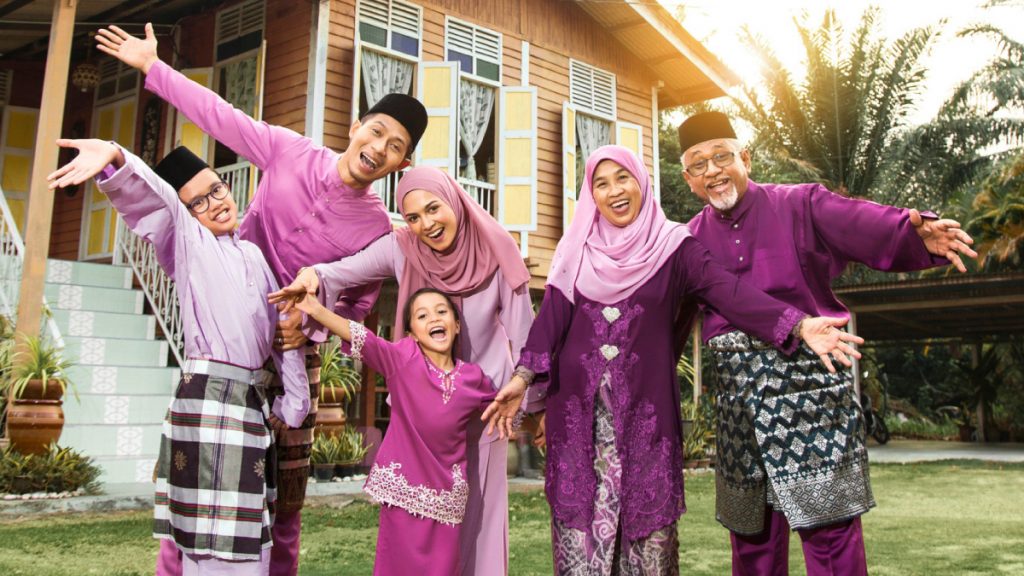Hari Raya Puasa, also known as Eid al-Fitr, is one of the most significant Islamic festivals in Malaysia. It marks the end of Ramadan, the holy month of fasting. This festive occasion is a time of joy, gratitude, and togetherness, celebrated with various traditions and cultural practices unique to Malaysia.
Hari Raya Puasa Dates (2024-2027)
| Year | Date | Day | States Observed |
|---|---|---|---|
| 2024 | April 10 | Wednesday | Nationwide |
| 2025 | March 31 | Monday | Nationwide |
| 2026 | March 21 | Saturday | Nationwide |
| 2027 | March 10 | Wednesday | Nationwide |
History and Background
Hari Raya Puasa, also known as Eid al-Fitr, signifies the conclusion of Ramadan, a month of dawn-to-sunset fasting observed by Muslims. The festival is a significant religious holiday celebrated by Muslims worldwide, including in Malaysia, where it is a public holiday. Hari Raya Puasa is a time for Muslims to give thanks to Allah, seek forgiveness, and foster stronger community bonds.
Malaysian Traditions and Cultural Significance
Morning Prayers and Sermons
The day of Hari Raya Puasa begins with special morning prayers, known as Salat al-Eid, performed at mosques and open areas. These prayers are followed by a sermon that emphasizes the values of gratitude, compassion, and community.
Visiting Graves
Many Malaysians visit the graves of their loved ones during Hari Raya Puasa to offer prayers and remember those who have passed away. This act of remembrance reinforces the spiritual significance of the festival and connects the living with their ancestors.
Open Houses
Open houses, or “rumah terbuka,” are a hallmark of Hari Raya Puasa in Malaysia. Families open their homes to friends, relatives, and neighbors, regardless of their ethnic or religious background. This tradition fosters social harmony and provides an opportunity for people to strengthen their bonds.
Traditional Foods
Hari Raya Puasa is celebrated with a variety of traditional Malay dishes. Favorites include ketupat (rice cakes wrapped in coconut leaves), rendang (spicy meat stew), satay (grilled skewers), and an array of festive cookies and sweets. These dishes are typically prepared in large quantities to share with guests during open houses.
New Clothes and Gifts
It is customary for Malaysians to wear new clothes, often in traditional attire, to mark the festive occasion. This practice symbolizes renewal and purity. Children receive duit raya, or festive money, in small green packets from elders, which adds to the joy of the celebration.
Hari Raya Puasa Celebrations Across Malaysia
Kuala Lumpur
In the capital city, Kuala Lumpur, mosques such as the National Mosque and Masjid Jamek hold large congregational prayers. The city is adorned with festive lights, and shopping malls feature decorations and special events celebrating the holiday.
Penang
In Penang, the Muslim community gathers for prayers and celebrations at significant mosques like Kapitan Keling Mosque. Open houses are prevalent, and the local cuisine adds a unique flavor to the festivities.
Kota Bharu
Kota Bharu in Kelantan, known for its strong Islamic heritage, celebrates Hari Raya Puasa with traditional ceremonies and communal prayers. The state’s cultural practices are prominently displayed during the festival.
Sabah and Sarawak
In East Malaysia, the states of Sabah and Sarawak observe Hari Raya Puasa with local customs that reflect the unique cultural blend of indigenous and Malay traditions. The celebrations here often include traditional dances and music, adding a distinct regional flavor to the festival.
Conclusion: A Celebration of Faith and Unity
Hari Raya Puasa in Malaysia is a vibrant and joyous festival that highlights the country’s cultural diversity and strong sense of community. It is a time for Muslims to celebrate the end of Ramadan with gratitude and joy, sharing their happiness with people of all backgrounds. The festival’s traditions and practices foster unity and mutual respect, reflecting Malaysia’s rich multicultural heritage.
Subtitle: Hari Raya Puasa: Unity in Diversity
Hari Raya Puasa in Malaysia is more than just a religious observance; it is a celebration of unity and diversity. From communal prayers to open houses and traditional feasts, the festival brings people together, transcending ethnic and religious boundaries. The spirit of Hari Raya Puasa embodies the essence of Malaysian hospitality and cultural richness.
Frequently Asked Questions (FAQs)
Is Hari Raya Puasa a public holiday in Malaysia?
Yes, Hari Raya Puasa is a public holiday in Malaysia, celebrated nationwide.
How do Malaysians typically celebrate Hari Raya Puasa?
Malaysians celebrate Hari Raya Puasa with morning prayers, visiting graves, hosting open houses, enjoying traditional foods, and wearing new clothes. It is a time for forgiveness, gratitude, and community bonding.
What are some traditional foods eaten during Hari Raya Puasa in Malaysia?
Traditional foods include ketupat, rendang, satay, lemang (glutinous rice cooked in bamboo), and a variety of festive cookies and sweets.
What are popular destinations in Malaysia to experience Hari Raya Puasa celebrations?
Popular destinations include major cities like Kuala Lumpur, Penang, and Kota Bharu, as well as the states of Sabah and Sarawak, where the festival is celebrated with unique local customs and traditions.

